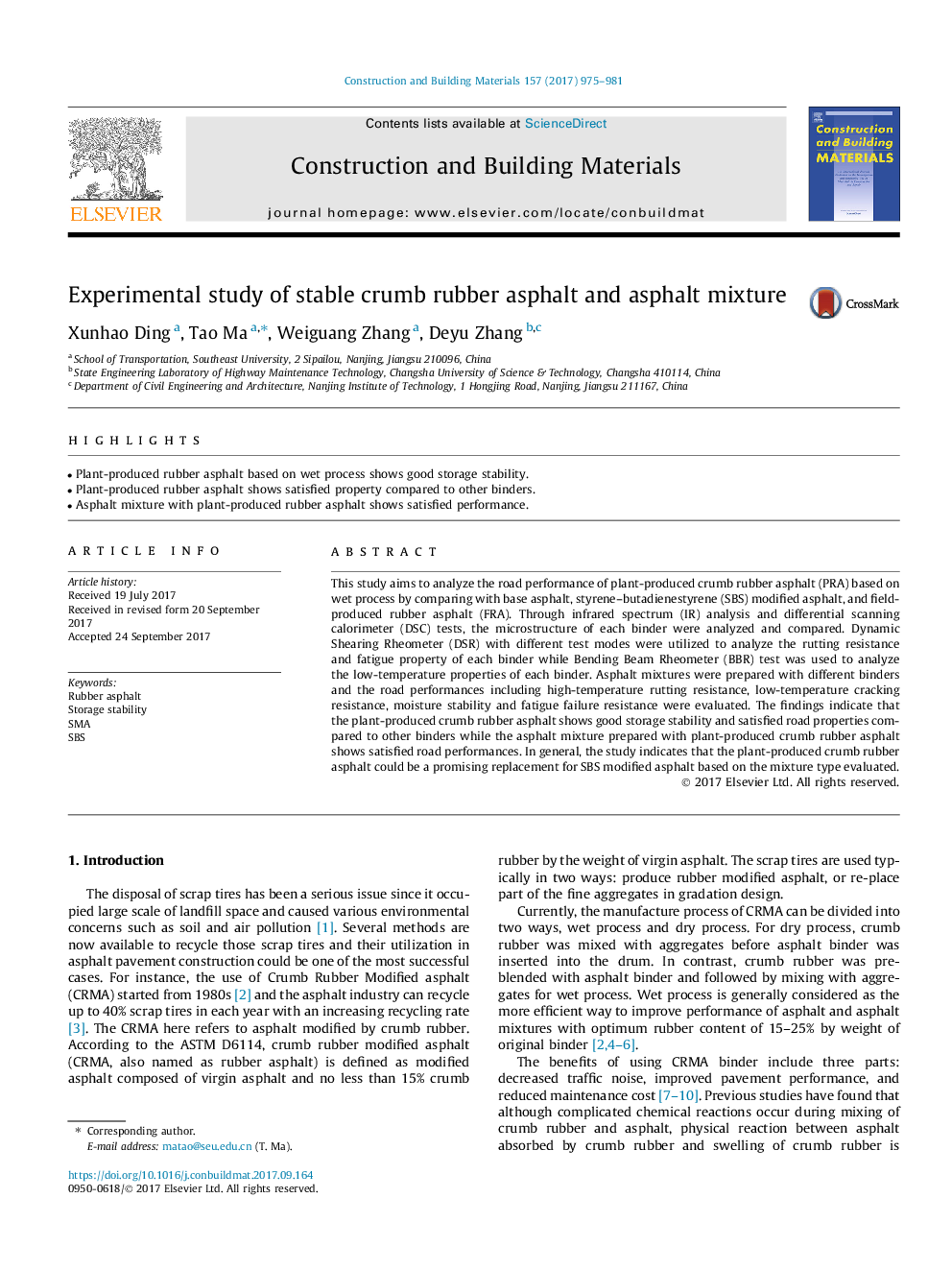| Article ID | Journal | Published Year | Pages | File Type |
|---|---|---|---|---|
| 4912932 | Construction and Building Materials | 2017 | 7 Pages |
Abstract
This study aims to analyze the road performance of plant-produced crumb rubber asphalt (PRA) based on wet process by comparing with base asphalt, styrene-butadienestyrene (SBS) modified asphalt, and field-produced rubber asphalt (FRA). Through infrared spectrum (IR) analysis and differential scanning calorimeter (DSC) tests, the microstructure of each binder were analyzed and compared. Dynamic Shearing Rheometer (DSR) with different test modes were utilized to analyze the rutting resistance and fatigue property of each binder while Bending Beam Rheometer (BBR) test was used to analyze the low-temperature properties of each binder. Asphalt mixtures were prepared with different binders and the road performances including high-temperature rutting resistance, low-temperature cracking resistance, moisture stability and fatigue failure resistance were evaluated. The findings indicate that the plant-produced crumb rubber asphalt shows good storage stability and satisfied road properties compared to other binders while the asphalt mixture prepared with plant-produced crumb rubber asphalt shows satisfied road performances. In general, the study indicates that the plant-produced crumb rubber asphalt could be a promising replacement for SBS modified asphalt based on the mixture type evaluated.
Keywords
Related Topics
Physical Sciences and Engineering
Engineering
Civil and Structural Engineering
Authors
Xunhao Ding, Tao Ma, Weiguang Zhang, Deyu Zhang,
